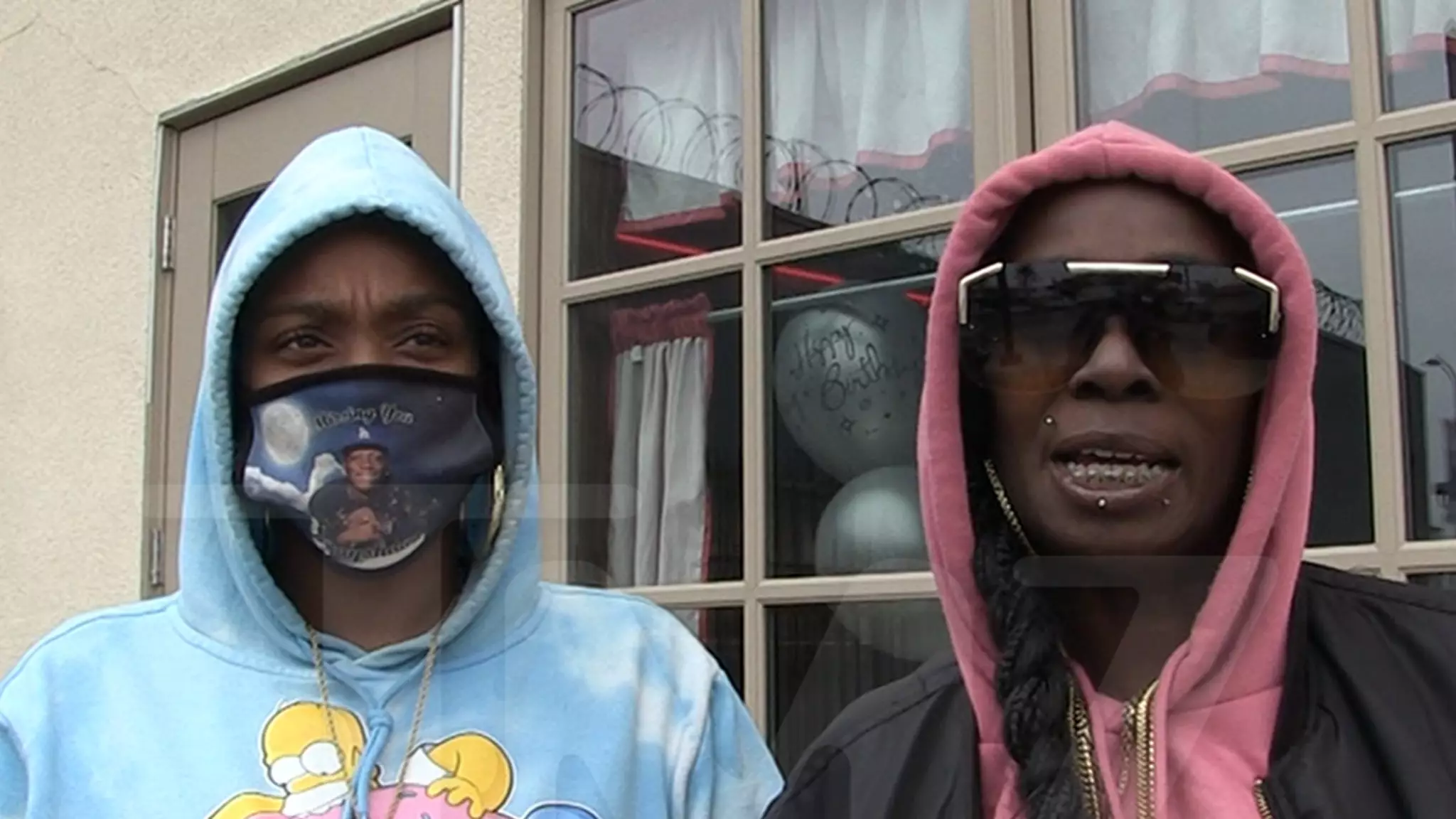In a story that highlights the devastating impact of gang culture, Eugene “Big U” Henley Jr., a prominent figure from Los Angeles, finds himself at the center of a horrifying case involving murder and betrayal. With a not guilty plea to multiple serious charges, including murder, he stands under the heavy scrutiny of both the law and the public eye. At the heart of this tragedy is Rayshawn Williams, a young artist signed to Big U’s label, whose life was cut short in a brutal act of violence that has left his family shattered.
The allegations are grim, detailing how Williams was allegedly murdered following a dispute in Las Vegas, a confrontation that spiraled out of control and resulted in him being dragged to a desolate area, where his body was left to decay. As the pieces of this tragic puzzle come together, it becomes clear that the relationship between Big U and Williams was fraught with tension, largely exacerbated by artistic expression gone awry. Williams reportedly composed a diss track aimed at Big U, an act perceived not just as a personal affront but as a dangerous challenge in the volatile world they inhabited.
A Mother’s Grief and Resolve
In the aftermath of her son’s death, Shadonna Brown, Williams’ mother, has emerged as a powerful voice, not merely as a grieving parent but as a woman asserting her intuition against a backdrop of systemic violence. Outside Roscoe’s Chicken and Waffles, she passionately relayed her belief in Big U’s culpability, a sentiment that mirrors the experiences of many mothers who have lost children to gang-related violence. Brown’s claim of “a mother’s intuition” echoes a sentiment that resonates deeply within communities plagued by such tragedies; her instinctual suspicions are not unfounded, especially given that her son was entwined in a world of betrayal and conflict.
While the legal system grinds forward, Brown has taken proactive measures to protect her family amid growing threats linked to her son’s murder. Launching a GoFundMe campaign for relocation, she seeks not just physical safety but a sense of security that was stolen from her by an environment marred by treachery. Her anger is palpable, especially towards Big U, whom she entrusted with her son’s career. The absence of a call from him after the incident only deepens her sense of abandonment and distrust—elements that poison personal relationships and disrupt community bonds.
Implications for the Music Industry and Community
This tragic event has rippling effects that extend beyond the immediate families involved. Big U’s notoriety and his role as a gang leader juxtaposed with his business in the music industry raise critical questions about the intersections of art, violence, and loyalty. The fallout from this incident has not only jeopardized Big U’s legal standing but has also threatened the viability of his business and partnerships, including Adam22’s No Jumper, which stands as a cultural pillar within hip-hop media.
The narrative of violence that permeates this case starkly contrasts with the positive aspirations many artists hold when entering the music industry. The cycle of retribution and the demand for loyalty often eclipse creativity and artistic expression, creating a treacherous landscape for emerging artists. Brown’s loss serves as a heart-wrenching reminder of the stakes involved—her son was not just a casualty of violence but a vibrant spirit whose potential was extinguished too soon.
As the trials unfold and the community grapples with the aftermath, it becomes evident that healing will require more than just legal accountability. It calls for a collective reckoning with the cultural forces that uphold violence and betrayal within the very industry that shapes so many dreams.

